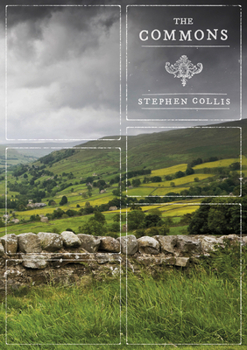The Commons
Between the sixteenth and eighteenth centuries, most of the English common lands were enclosed--taken, by force, out of the hands of local collective use and privatized. The resistance to capitalism's "primitive accumulation," registered in recurring peasant revolts, failed to stem this tide of what we now call "privatization"--but it spilt over into Romanticism's own advocacy of a kind of literary commons. Underground in "the literary" since the nineteenth century, the fight against enclosure resurfaces today amidst continuing capitalist accumulations and a renascent sense of the commons under globalization. In The Commons we wander the English countryside with the so-called mad peasant poet John Clare, just escaped from an Essex asylum and walking the more than eighty miles to his home in Helpston; we pick wild fruit with anarchist Henry David Thoreau, also newly escaped from jail (for not paying his poll tax); and we comb the English Lake District, undermining William Wordsworth's proprietary claim upon it, with a host of authors of Romantic Guides and Tours. Resisting enclosure with each word, tearing down (intellectual) property's fencing, wandering in search of new commons, new spaces outside property's exclusive and excluding domain-- The Commons veers in and out of history to find spaces of linguistic hope. What we have named, in less inspired moments, "allusion," "borrowing," or even (pretentiously) "intertextuality" is just this fact that poetry proves again and again: our languages are common. Shared. Un-enclosable. The Commons is another installment of what Collis has called (half in jest) "The Barricades Project"--a broadly based, historically ranging test of the old adage that "poetry is the revolutionary act par excellence." It includes Anarchive (2005) and will eventually continue in The Red Album . The Commons includes an introduction to "The Barricades Project," written by Collis' collaborators Alfred Noyes and Ramon Fernandez.
Format:Paperback
Language:English
ISBN:0889229155
ISBN13:9780889229150
Release Date:September 2014
Publisher:Talonbooks
Length:152 Pages
Weight:0.50 lbs.
Dimensions:0.4" x 5.9" x 8.4"
Customer Reviews
1 rating
Green and Free
Published by Thriftbooks.com User , 16 years ago
In Vancouver recently I had the chance to meet poet and professor Steve Collis, author of a book of poetry I quite liked years back, ANARCHIVE, and now here comes its sequel, THE COMMONS--really more of a semi-sequel, even that dreaded word "prequel" since it takes place centuries before the Spanish Civil War setting of the earlier volume. But neither book is bound by history in any but the most ad hoc and helpful ways. Here we encounter the British poet John Clare as he struggles to maintain his sanity in a time of increased privatization and its concomitant loss of freedom. Clare was mad, we take it, for good reason, with a Laingian sense of the real. As the public sphere shrinks, like shadows approached by the prick of noon, Clare's mental state correspondingly waxes and wanes. Around him predators assume strange shapes--geese, hatches, foundries. For Collis, the world of poetry is a place in which "the commons," a free place of exchange and mutual association, still maintains a parlous grip on imagination. I always like it when people use the expression "free reign" where we used to say, "free rein," perhaps because the age of riding horses has passed us by, while on the other hand more despots reign over us than ever, so we're familiar with the reign--"thievery governments" as Collis says in a poem later in the book. In any case he expands from Clare into a larger world of Romantic poets moving hither and yon in a tragic search for self expression in a world of centralized capital clotting together like cream in the sun. With the English and Spanish milieux of his last two books, Stephen Collis is like Woody Allen laying down his favorite scenarios in European outfits. And maybe THE COMMONS isn't quite a gripping or involving as ANARCHIVE, but the pastoral always has a free and easy charm about it that some mistake for laissez-faire. Not so Steve Collis, who makes us hungry for more in this saga. His tutelary spirits here, Alfred Noyes and Ramon Fernandez, assure us that the poet will next take us to revolutionary Paris for THE RED ALBUM, and somewhere Scarlett Johanson is waiting for Woody's phone call telling her the part of Charlotte Corday is hers alone.





